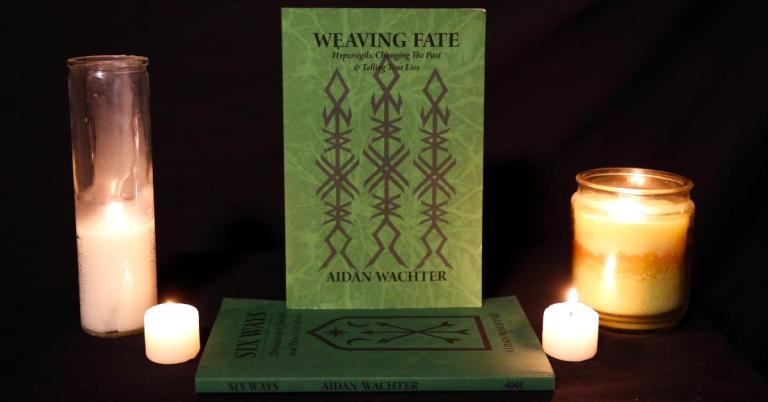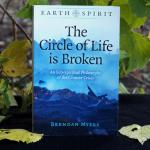What do you do when the things that used to bring you satisfaction, meaning, and joy no longer do?
Or perhaps more confusingly, when you don’t want to do these things anymore despite knowing they will bring you satisfaction, meaning, and joy?
Or worse, when you find yourself clinging to a familiarity that has become mediocre at best, unwilling to step out into some new possibility that is promising but uncertain?
I hinted at this in my post on my pilgrimage to Yosemite. To say Yosemite was “on my bucket list” would be disrespectful to the spiritual call I’ve felt for many years. I really wanted to go. I had a wonderful experience while I was there. And I still had to make myself get out of bed and make the trek into the park.
Part of that was a fear of what might go wrong. Part was a fear of disappointment. And part was what I rather vaguely called “spiritual entropy” – the tendency to just keep doing what you’ve been doing because it’s OK and doing something different is risky, not to mention a lot of effort.
This is not a good way to live.
Especially when a God who has been with you your whole life tells you “go do these things!”
As always when dealing with complicated problems, the answer begins with accepting reality. But it quickly moves to refusing to accept an unhelpful reality as inevitable and remembering that as Pagans and witches and other folks in the Big Tent, we have the power to change and shape reality.
Core practices require discipline
Some things we do because they must be done: eat, sleep, bathe, and such. If we don’t do these things it’s usually a sign that something is seriously wrong requiring professional attention.
If spiritual practice isn’t on the same level as these biological essentials, it’s no more than a half step below them. Whatever it is we do to maintain our connections to our Gods, ancestors, and our spiritual traditions, we must do them regularly, no matter what.
This can be difficult. It requires will. It likely won’t be perfect – when you fail, pick it up again. Remember: anything worth doing is worth doing badly (as opposed to not doing it at all).
What falls under the category of core practices? For me, it’s daily prayers and meditations, weekly offerings, and seasonal celebrations. Those simply cannot be missed, and if they are missed they have to be made up. I have friends who have exercise routines that are core for them, barring injury or illness. You have to build your own practice, and I encourage everyone to start small. Do one thing well and then add to it, rather than trying to start with many things. That usually leads to frustration.
But in building a Paganism for the long haul, there are some things – a few things – that we simply do whether we feel like it or not.
Nothing lasts forever
I’m not talking about “the new wearing off.” I’m not talking about people who constantly chase higher and higher peak experiences. I’m talking about the fact that everything has a lifespan and the myth of continuous progress is a lie.
I had a great year in 2017. My first book was published, I had more invitations to speak at Pagan gatherings than I could accept, my family life and paying job went well, and my local Pagan groups were doing some amazing work, both public and private. That year was so good I felt the need to acknowledge it publicly, something I rarely do. But in that acknowledgement, I admitted that history says “next year” usually returns to average rather than continuing on a trend.
That wasn’t “being negative.” That was simply acknowledging the reality that life has good days and bad days, good years and bad years – and sometimes we get something like 2020. This is why Buddhism emphasizes impermanence and teaches equanimity. I prefer to enjoy the good times and work to minimize the bad times, but the Buddhists have a point.
When we’re in this for the long haul, we accept that things we wish would last forever – or at least, things we hope will outlive us – rarely do. And in accepting it, we can move forward.

Good enough really is good enough
If there is one overriding key to happiness in the modern Western world, it’s developing a deep and intuitive understanding of enough. As Brendan Myers pointed out in his new book, many of the causes of climate change have their roots in a failure to recognize and appreciate enough. In his words, “what was all that ecological destruction finally for?”
Once you have enough, more doesn’t make you happier. It just keeps you chained to the same treadmill, trying to make more money, build a bigger Instagram following, or have a more powerful experience. And that sets you up for useless work and continual disappointment.
The challenge is to recognize the difference between “good enough” and “what I’m used to.” Humans are resilient creatures – we can adjust to some really horrible conditions. Sometimes that’s necessary – either you adjust or you have a major problem. In my job from hell in the mid-1990s, I got used to working 60 hours a week, every week. I had to adjust, because I needed to stay where I was until some other things were finished. But as soon as those things were clear, I started working to get out.
But if things are less than perfect but good enough? Maybe it’s time to re-evaluate your expectations.
Self-care: from helpful necessity to harmful indulgence
Self-care is important in good times and critical in bad times. This article from the National Institute of Mental Health does a good job of explaining what’s involved in self-care.
In common usage, self-care often means setting boundaries, learning to say “no” to things you don’t really want to do, and allowing yourself small pleasures and indulgences. This is good and necessary – up to a point.
During the worst of the pandemic I pretty much stopped saying “no” to anything I wanted. Food, drink, toys, skipping exercise… Life was stressful and anything that brought a bit of pleasure, that took my mind off the isolation and off the fear was a good thing.
Somewhere in there I crossed the line from short-term coping mechanisms to building bad habits. It’s taken most of this year to get back to where I need to be.
Take care of yourself. Indulge yourself from time to time. But be careful what habits you build.
Going backward isn’t possible – going forward is
When the things that used to bring us satisfaction no longer do, it can be tempting to try to go back to the time when they did. Can I be honest? I’ve spent a fair amount of time this year re-reading my journal from 2017. What made that year so good? How can I bring it back?
I can’t.
None of us can.
We can’t go back to the time before Covid, before January 6, before Dobbs.
What we can do is use our past successes as a guide for moving forward. What did we learn? What principles were involved? What skills did we build?
How can we apply them to where we are here and now?
And sometimes all you can do is appreciate that something was good and special and magical for a brief time. Learn from the experiences and cherish the memories, but remember that we are Pagans who accept death and don’t hope for a resurrection.
We plan on rebirth.
What do you really want?
At some point, it comes down to this. I wanted to experience Yosemite more than I wanted to stay in bed, more than I wanted to not have to travel, more than I wanted to spend time at home.
If you really prefer to stay home rather than to travel, that’s fine. Again, we are Pagans – we accept people for who and what they are, and for what they want in life (so long as that doesn’t interfere with someone else living their life the way they want to live it).
Figuring out what you really want is hard. We’re bombarded with constant messages of what we’re supposed to want, either from people proselytizing for their religion or way of life, or from those who want us to buy what they’re selling. This wisdom comes only with meditation, contemplation, and reflection – and for most of us, with plenty of trial and error.
I was in my 40s before I accepted that what I really want is being a Pagan priest, teacher, and writer.
But my 40s were a long time ago (sigh). I know what I want.
Apparently I have to be reminded of this from time to time, or entropy takes over and I forget why I was doing all this in the first place.
What will it take to get there?
Unlike what the New Agers and Prosperity Gospel Christians teach, just wanting something – “claiming” it – doesn’t accomplish much. Setting your intention is the beginning of the process, not the whole process.
What do you want? What will it take to get it? What mundane efforts are required? What magic is required? Do you have the necessary skills? If so, how can you best apply them? If not, how can you learn them? Do you have the resources you need? If not, how can you get them?
Do you want to do these intermediate steps? If not, seriously question if the end result is truly what you want. Everyone wants to be rich, but very few want to have the kind of single-minded obsession with making money it takes to become rich. The same is true of any other endeavor.
When you figure out what you want, then you can make a plan to get there… and then start working the plan.
Build a hypersigil
There are many ways to incorporate magic into your long haul Paganism. I encourage everyone to do some magical working every full moon, just to build and sharpen your skills.
When it comes to your long-term plans, one of the best magical techniques is the hypersigil. This is a long-term, multi-step process of visualization and affirmation. Aidan Wachter describes it in detail in his book Weaving Fate. I’ve used this technique before with good success. I have two hypersigils going at the moment – they’re helping me get to where I want to go.
I just have to remember to charge them on a regular basis, so I don’t lose sight of the main goal before I reach it.

Find joy along the way
Accept reality. Some things you have to just do, whether you want to or not. Things that were good and meaningful rarely last as long as we’d like – don’t waste your time trying to resurrect something that died a natural death. Indulge yourself in moderation, but mainly take care of yourself.
Figure out what you really want, then figure out how to get here.
You’re a Pagan with skills many people don’t have – use them.
And along the way, find moments of joy and pleasure. Good food and drink, in moderation. Good company. Inspiring entertainment. Places of natural beauty and power. Whatever it is that leaves you saying “yeah, that was good.”
Do what you need to do to become and do what you want to become and do. Work hard and work smart.
But enjoy the journey while you do.
I know what I want and I know how to get there. I’m human – I’m as susceptible to fatigue and complacency as anyone. But I’m in this for the long haul, and I’m going to keep doing what I need to do to get there.
Now if you’ll excuse me, I have a couple of hypersigils I need to recharge.




















